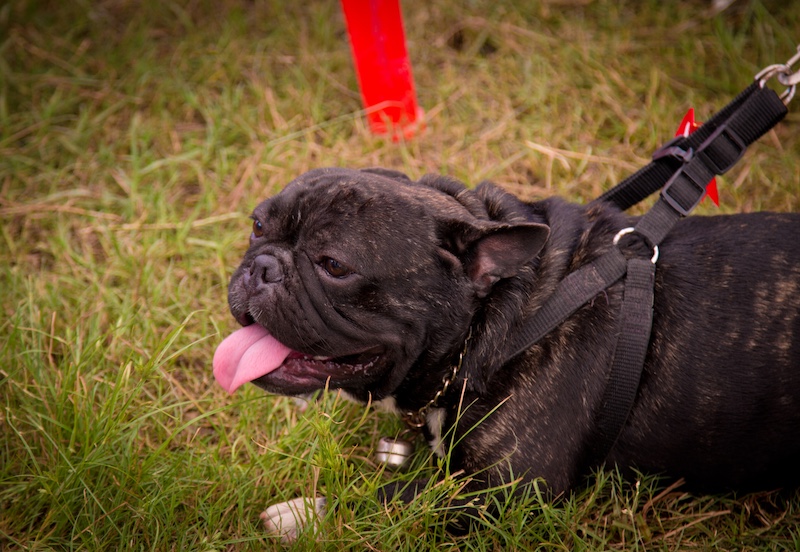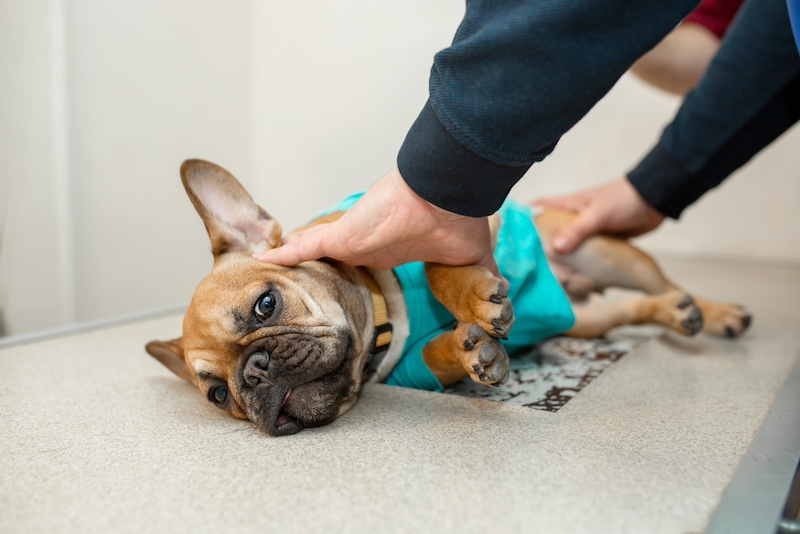French Bulldogs, often affectionately referred to as “Frenchies,” have captured the hearts of dog lovers worldwide. Even if you don’t have a Frenchie of your own, you’ve probably found yourself scrolling through adorable pictures and videos of them on social media. With their distinctive bat-like ears, charming expressions, and compact bodies, these dogs are not just adorable but also full of personality. Here are ten interesting facts about French Bulldogs that highlight why they are such beloved companions.
1. French Bulldogs Originated in England, Not France

Despite their name, French Bulldogs actually have their roots in England. They were initially bred as a smaller version of the English Bulldog to be companion animals for lace workers in Nottingham. When the lace industry moved to France, these workers brought their small bulldogs with them. Over time, these dogs were bred with local French breeds, leading to the French Bulldog we know today.
2. French Bulldogs Have Distinctive Bat-like Ears

One of the most recognizable features of the French Bulldog is its bat-like ears. Unlike English Bulldogs, which have more rounded ears, Frenchies have large, upright ears that give them a distinctive and endearing appearance. These ears are not only cute but also quite expressive, adding to their charming personality.
3. French Bulldogs Are Prone to Overheating

Due to their brachycephalic (short-nosed) structure, French Bulldogs are prone to overheating. Their short snouts make it difficult for them to cool down effectively, especially in hot weather. Owners need to be cautious and ensure their Frenchies are kept in cool environments and well-hydrated, particularly during the summer months.
4. French Bulldogs Are Excellent Companions

French Bulldogs are known for their affectionate and friendly nature. They are excellent companions, often forming strong bonds with their owners. Their loving disposition makes them great pets for families, singles, and seniors alike. They thrive on human interaction and are known to be quite the lap dogs.
5. French Bulldogs Have a Stubborn Streak

While French Bulldogs are generally friendly and affectionate, they can also be quite stubborn. This trait can make training a bit challenging, but with patience and consistency, they can learn commands and tricks. Using positive reinforcement techniques, such as treats and praise, can be particularly effective in training Frenchies.
6. French Bulldogs Are Not Natural Swimmers

Due to their heavy, muscular bodies and short legs, French Bulldogs are not natural swimmers. Their physique makes it difficult for them to stay afloat and swim efficiently. If you have a Frenchie and a pool, it’s important to supervise them closely around water and consider getting them a life jacket for added safety.
7. French Bulldogs Are Sensitive to Anesthesia

French Bulldogs have a higher sensitivity to anesthesia compared to other breeds. Their brachycephalic anatomy makes them more prone to respiratory issues during anesthesia, which requires veterinarians to take special precautions. Always ensure that your veterinarian is experienced in handling brachycephalic breeds if your Frenchie needs surgery.
8. French Bulldogs Come in a Variety of Colors

French Bulldogs come in a wide range of colors and patterns. Some of the most common colors include brindle, fawn, white, and black. They can also have unique markings such as pied (patches of color on a white background) and merle (a marbled coat pattern). This diversity in appearance adds to their charm and appeal.
9. French Bulldogs Have a Unique Bark

French Bulldogs are not known for being excessive barkers, but they do have a unique bark that is often described as a combination of a grunt and a yip. Their vocalizations can be quite entertaining and are usually reserved for when they are excited, want attention, or sense something unusual.
10. French Bulldogs Have a Short Lifespan

Unfortunately, French Bulldogs have a relatively short lifespan compared to some other breeds. On average, they live between 10 to 12 years. Their lifespan can be impacted by various health issues, including respiratory problems, hip dysplasia, and spinal disorders. Regular veterinary check-ups and a healthy lifestyle can help ensure they live a long and happy life.

